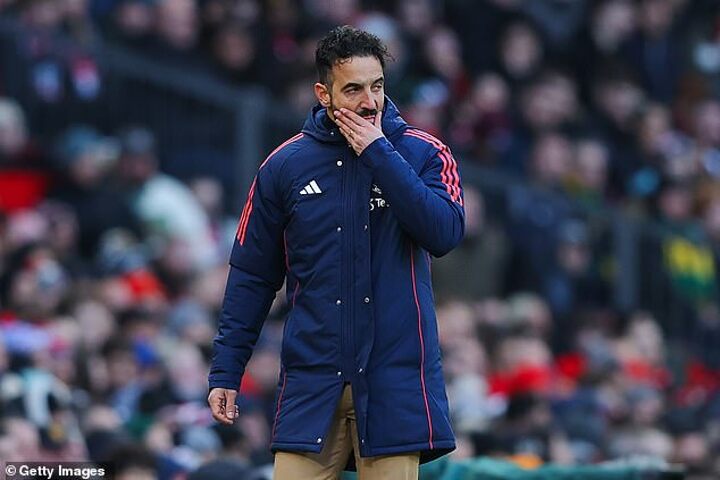As Ruben Amorim spoke to the media after Manchester United were humiliated at home by Bournemouth on Sunday, water began to drip from the roof of the venue at Old Trafford.
Leaks are appearing pretty much everywhere at United these days, whether it's the stadium, Amorim's team selections or, most worrying of all, its defence.
Although there was a sense of deja vu when Bournemouth won again 3-0 here before Christmas, the sight of United getting the first goal from a new set-piece felt even more familiar.
Only Wolves have a worse record than United, who have conceded nine goals from free kicks or corners in the league this season and 17 in total in 2024. That's a club record and there are still two games to go – against Wolves at Molineux on Boxing Day and at home to Newcastle on December 30.
Perhaps most worrying for United is that their defensive problems have only worsened under new head coach Ruben Amorim, who has insisted on playing a back three since taking over in November.
Amorim has the highest number of goals (and set-piece goals) per match of any United boss in the Premier League era.
In Amorim's defense, he was parachuted in mid-season to improve a situation he had not created, using players he had not signed.
United's most expensive summer signing, £59m Leny Yoro, has only recently recovered from a broken metatarsal, Tyrell Malacia is working his way back from an 18-month layoff, Luke Shaw and Victor Lindelof have both been wrecked during their comebacks, Harry Maguire was almost two months out of action and Matthijs de Ligt missed the defeats to Spurs and Bournemouth due to illness.
But Amorim's teething problems and weaknesses at the back are starting to cause concern as United look embarrassed to be bottom of the table for the first time in 35 years at Christmas.
Thirteenth place after six league games – and three defeats – among the Portuguese is only one place better off than when Erik ten Hag was fired in October.
This is no longer just a bad start. The match against Newcastle will mark the halfway point of the season as United struggle to avoid falling even further than last season, when Ten Hag's eighth-place finish was United's worst in the Premier League era.
Ten Hag's side had a goal difference of minus one and United are now in the same situation, having struggled to score on one side and keep out on the other.
Amorim senses a nervousness when playing from the back, and a vulnerability that has seen both Spurs and Bournemouth score goals in quick succession – a problem that also plagued Ten Hag.
“Two goals very quickly, like against Tottenham,” he said. 'You want to react, but you can't do that because you get another goal and then we suffer until the end of the match. One of our focuses is to keep the peace when you concede a goal.'
Set pieces in particular have become a concern, with United conceding a 41 percent lead this season.
Amorim has taken the responsibility for set pieces away from first-team coach Andreas Georgson, who was appointed by Ten Hag this summer, and handed it to his number 2 Carlos Fernandes.
With every corner or free kick, whether offensive or defensive, Amorim and Fernandes switch places in the technical area like clockwork, as if they were two figures in a weather house. But the situation has only worsened with United conceding five goals from set pieces in Amorim's six games, at a rate of 0.83. Across all competitions, set pieces have led to goals seven times in six matches.
As in every match under the new Portuguese coaching team, United's players crowded the penalty area during warm-up on Sunday and practiced defending Bruno Fernandes' set-pieces.
Yet United held on for less than half an hour when young Bournemouth defender Dean Huijsen rose to head in from Ryan Christie's free-kick.
It doesn't help that Amorim has rotated his line-up, back three, to try to keep players fresh and get his ideas across – or that United aren't blessed with much height if Yoro or Maguire don't. play.
“All areas are of concern, especially set pieces,” Amorim admitted. 'We are training for that and it needs to be improved. There are a lot of teams that are very strong at it, so we work on it a lot. We don't have much time to explain, but we'll try.
“Nothing bad lasts forever and nothing good lasts forever, so we have to be very strong in our ideas – especially in the bad moments.”
